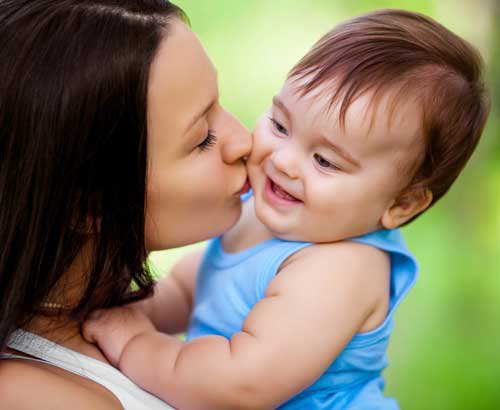Talking to Children about Their Donor Conception

When I am speaking with patients who are considering or have made the decision to use egg donation to form their family, the topic of talking to future children about their donor history usually arises in the conversation. For some, the decision “whether to tell” or “how to tell” seems distant, to be dealt with at some unspecified time in the future. For others, becoming informed about telling a child is important now and part of the preparation for becoming a parent in this way.
Although this is a personal family decision, there is a growing consensus in favor of telling children conceived with donor gametes about their origins. The American Society for Reproductive Medicine (ASRM) Ethics Committee supports disclosure by parents in the best interests of children. Additionally, the importance of having an accurate medical history and the growing use of genetic testing in medicine may ultimately reveal this information, possibly in less than optimal circumstances.
Many parents feel more comfortable planning how their children will learn about egg donation, in an attempt to avoid having them discover this by accident or have them hear about it from someone other than their parents. Nor do they want to have a family secret. It can be helpful to consider how open or private you want to be from the beginning, even while contemplating the use of a donor. It is also important to think about who else may know about your decision and how you want the information handled.
Having made the choice to tell a child, considering child developmental stages is helpful. There is no “one way” or “best time” to tell, but it will depend on the individual child and circumstances. You can even begin by telling your infant the whole story. They will hear the love in your voice, and you get a chance to practice.
Talking about your own family is a good place to start, teaching young children about the members of your family and how the family came together. Mentioning that some families need help to come together through medical help or adoption allows the child to see your comfort with the diversity of modern families. Once parents become comfortable with egg donation, they can communicate that to their children, not only by what they say, but how they say it. Being calm, with relaxed body language, and using matter- of-fact responses will go a long way in conveying this.
Children love to hear about themselves, so you can develop a “Family Story” that is told with greater detail over the years. By reading special children’s books together, answering questions openly and using teachable moments, you can weave their story into the fabric of your family. A good time to share more detailed information is prior to adolescence, in the school years, around ages 7-12, depending on the child. This is a time when children begin to understand privacy and are very attached to family.
Teens however, may have growing curiosity and ask more specific questions about the donor. You may not have all the answers, but you can provide a supportive atmosphere and share the information you have available. As children move through these developmental phases they will have the opportunity to make this history part of their identity.
The hope is that over time, the story will become integrated in such a way that a child might feel “I always knew that.” Meeting other families formed through egg donation in support groups or talking with a fertility counselor are ongoing sources of support to assist you.
Helpful Resources:
American Society for Reproductive Medicine (ASRM)
-ASRM Mental Health Professional Group Book List
Categories
Latest Posts
- Pride, Parenthood and Possibility: A Guide for Gay Dads Using Frozen Donor Egg
- Victoria’s Story: Choosing Donor Egg and Beyond
- Heartbreak, jealousy, and then one ‘golden egg’. How actress Camille Guaty finally became a mom with donor egg
- Empowering Your Family Dreams: Accessing Fertility Coverage Made Simple
- Donor Egg Bank USA’s Partner Summit 2024
- Planning, Painting and Picking: A Donor Egg Bank USA Employee’s Journey to Motherhood
- Real Stories: A Path to Parenthood Through Donor Eggs
- Mental Health and Infertility 101: What You Should Know
- Mark Yourself as a Resource During National Infertility Week®
- 5 Reasons It’s Not Your Fault You’re Not Pregnant

Comments
Share Your Thoughts